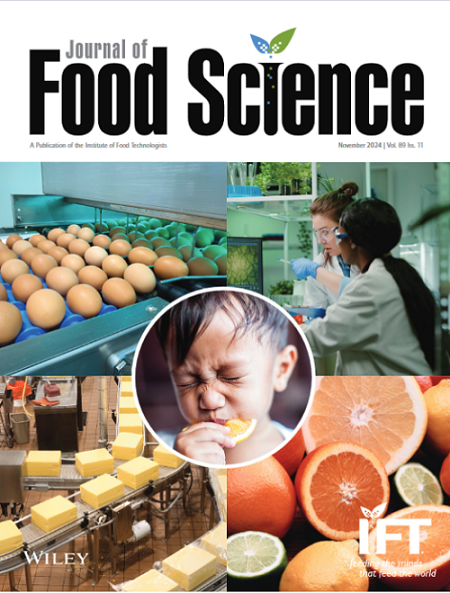Impact of Allyl Isothiocyanate Addition on Consumers’ Sensory Perception in a Solid Food Matrix
Abstract
ABSTRACT
Cross-modal interactions have been investigated for different chemical irritants, but allyl isothiocyanate (AITC) remains largely unexplored. The objective of this study was to evaluate AITC's cross-modal interactions and impact on sensory perception of a solid food matrix (i.e., curried rice) when added at detection threshold (0.123 mg/100 mL) and below detection threshold (0.115 mg/100 mL). Furthermore, the study investigated the impact of encapsulation of AITC (spray dried with gum Arabic and Tween-20) on sensory perception. Curried rice was prepared in five variations: without AITC, with AITC added at and below the detection threshold, and with encapsulated AITC added at and below the detection threshold. The participants (n = 88) evaluated the samples using hedonic scales and rate-all-that-apply. The encapsulated AITC did not impact the consumers' liking scores, but the unencapsulated AITC significantly decreased their liking of texture and overall liking. The encapsulated AITC only increased bitterness and spiciness when added at the detection threshold and did not suppress the sweetness. Both forms of AITC at the detection threshold increased the saltiness perception of the curried rice. The unencapsulated AITC added at both concentration levels suppressed the sweetness of the curried rice and increased the intensity of bitterness and spiciness. Below the detection threshold, neither form of AITC increased saltiness perception. Future studies should continue to explore AITC in different food matrices, using different encapsulation methods and using dynamic sensory methodologies to fully explore its impact on sensory perception of foods.
Practical Application
The food industry is investigating new methods to increase saltiness perception of food items, while reducing sodium content and salt. This study evaluated how AITC can be used to enhance the saltiness perception of a solid food. Furthermore, it evaluated the impact of encapsulation of AITC's cross-modal interactions. By investigating the addition of AITC and encapsulated AITC, this study helps identify how the addition of AITC impacts sensory perception, as well as if it is a suitable candidate to enhance the saltiness perception of food.

 求助内容:
求助内容: 应助结果提醒方式:
应助结果提醒方式:


